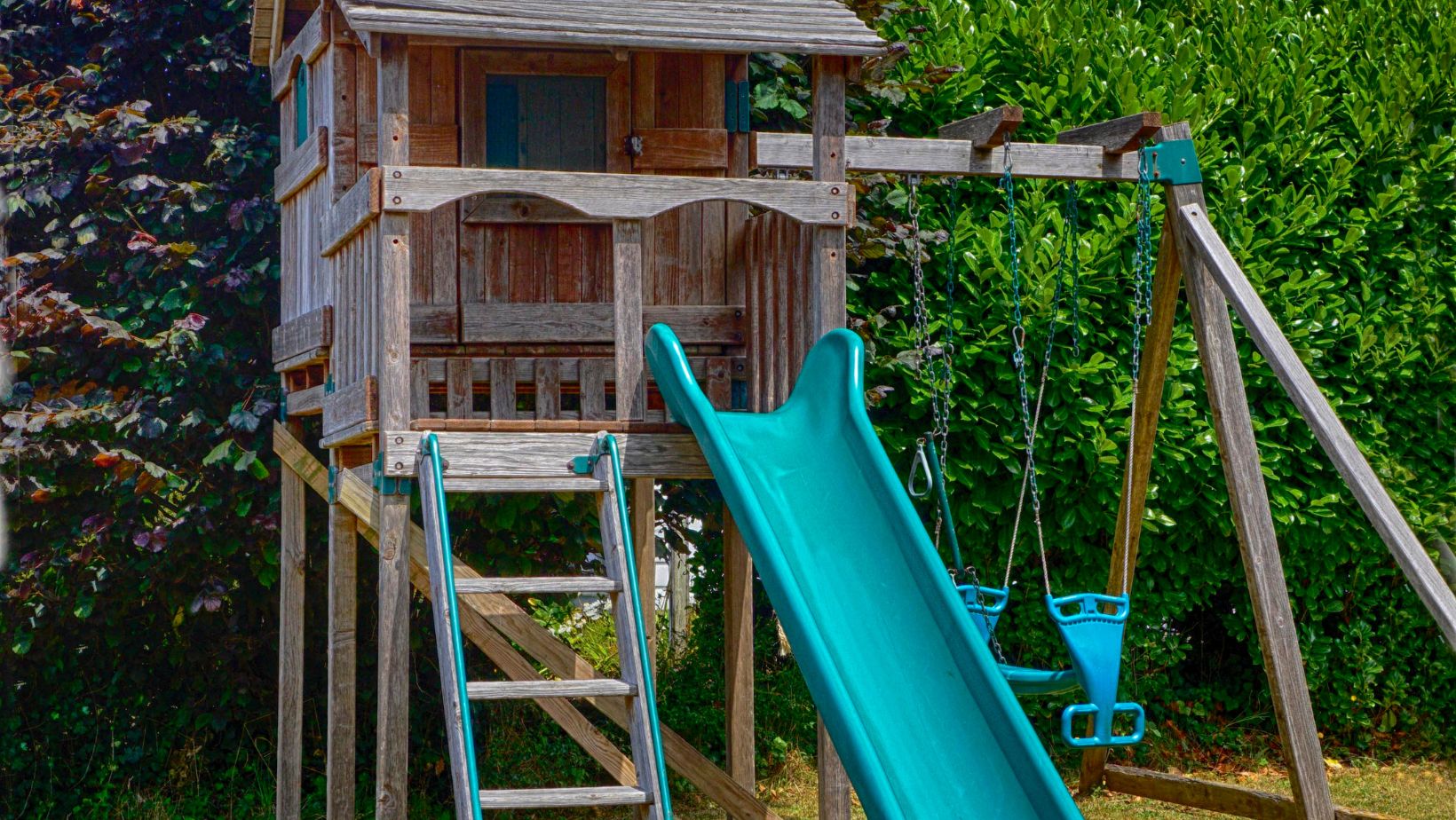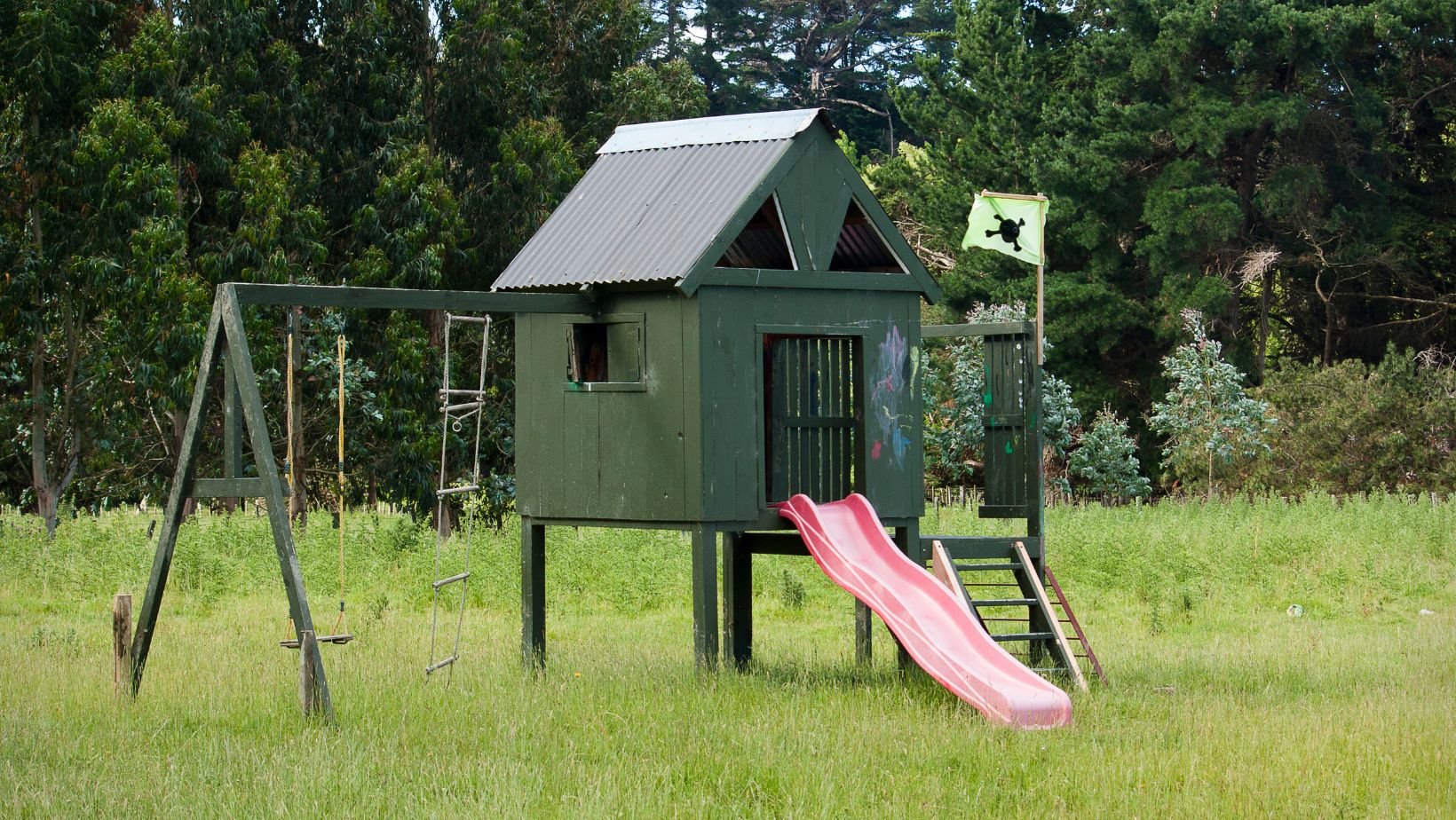Cubby houses, also known as playhouses or treehouses, hold a special place in the hearts of children around the world. These pint-sized abodes offer a magical space where imagination knows no bounds, creativity flourishes, and endless adventures await.
From secret hideaways and cozy retreats to epic forts and fantastical kingdoms, cubby houses provide the perfect setting for children to play, learn, and grow. Whether it’s installing playground equipment to enhance the experience or simply creating a magical space for imagination, cubby houses offer endless possibilities. This article will explore the numerous reasons why cubby houses are perfect for kids and why every child deserves a little slice of their own miniature paradise.
Encourages Imaginative Play
Cubby houses ignite the imagination and inspire creative play in children of all ages. Whether it’s playing house, hosting tea parties, embarking on imaginary adventures, or staging epic battles, cubby houses provide a blank canvas for children to bring their wildest fantasies to life.
With no limits or rules, children can immerse themselves in endless role-playing scenarios, experiment with different roles and identities, and express themselves freely in a safe and supportive environment.
Fosters Social Interaction
Cubby houses are the perfect setting for children to socialize, collaborate, and build friendships. Whether it’s sharing secrets, negotiating alliances, or engaging in cooperative play, cubby houses encourage social interaction and teamwork among children.
By playing together in a shared space, children learn important social skills such as communication, empathy, conflict resolution, and cooperation, laying the foundation for positive relationships and healthy social development.
Promotes Outdoor Play and Physical Activity
In today’s digital age, getting children to spend time outdoors and engage in physical activity can be a challenge. Cubby houses provide a compelling incentive for children to step away from screens and explore the great outdoors.

With their enticing play features and endless possibilities for adventure, cubby houses encourage children to run, climb, jump, and explore, promoting physical fitness, coordination, and motor skills development in a fun and enjoyable way.
Stimulates Cognitive Development
Cubby houses offer a rich sensory environment that stimulates cognitive development and intellectual growth in children. From navigating imaginary landscapes and solving make-believe mysteries to planning and organizing pretend play scenarios, children engage in a variety of cognitive tasks that enhance their problem-solving skills, critical thinking abilities, and spatial awareness.
Cubby houses also provide opportunities for sensory exploration, allowing children to touch, feel, and manipulate different textures, materials, and objects, which is essential for cognitive development in early childhood.
Provides a Sense of Ownership and Independence
Having a cubby house of their own gives children a sense of ownership and independence, empowering them to take charge of their play environment and make it their own.
Whether it’s decorating the interior, arranging furniture, or adding personal touches, children can customize their cubby house to reflect their unique tastes and preferences, fostering a sense of pride and ownership in their space. This sense of autonomy and responsibility helps children develop confidence, self-esteem, and a sense of identity as they assert themselves in their play environment.
Sparks Curiosity and Learning
Cubby houses are filled with opportunities for discovery, exploration, and learning. Whether it’s observing nature from a bird’s-eye view, experimenting with cause and effect, or engaging in hands-on sensory play, children are naturally drawn to the wonders of their cubby house environment.
Cubby houses provide a rich learning environment where children can explore concepts such as physics, biology, ecology, and mathematics through hands-on experimentation and play-based learning activities.
Encourages Independence and Risk-Taking
Cubby houses provide children with a safe and controlled environment where they can explore, take risks, and test their limits without fear of judgment or failure. By climbing, balancing, and navigating their way through the various features of their cubby house, children develop confidence, resilience, and problem-solving skills as they overcome challenges and obstacles.

Cubby houses also provide opportunities for children to practice decision-making, assertiveness, and independence as they navigate their play environment and interact with peers.
A World of Wonder Awaits
Cubby houses are the ultimate playground for children, offering a magical space where imagination thrives, friendships blossom, and adventures abound.
With their ability to inspire imaginative play, foster social interaction, promote outdoor activity, stimulate cognitive development, and provide a sense of ownership and independence, cubby houses offer countless benefits for children’s physical, emotional, and intellectual well-being.
Every child deserves the opportunity to experience the joy and wonder of a cubby house, where endless possibilities await, and memories are made that last a lifetime.















